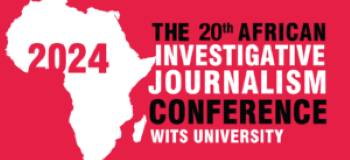Mariam Hamzat
Between the year 2018 and 2020, only 56 (63.6%) of the 88 Sexual and Gender-Based Violence (SGBV) cases –from a media-monitored sample—reported to the police or other law enforcement agencies were charged to court. Despite this, the verdicts of 23% of the cases are unknown. This is after 15.9% (over one-third) were not charged to court and the police could not trace whether 20.5% of the reported cases were charged to court or not.
This data is contained in a 2022 media justice status report on Sexual and Gender-Based Violence (SGBV) in Nigeria published by the Wole Soyinka Centre for Investigative Journalism (WSCIJ) and reported under the 2021 Report Women Female Reporters Leadership Programme (FRLP).
In Nigeria, GBV is a major issue, and according to the Nigeria Demographic and Health Survey (NDHS), nearly 3 in 10 Nigerian women have experienced physical violence by age 15. Most recently, a 2021 United Nations data revealed that 48% of Nigerian women have experienced at least one form of violence since the COVID-19 pandemic. Although the different forms of GBV are prohibited by the Nigerian constitution and the Violence Against Person (VAP) Acts, it persists.
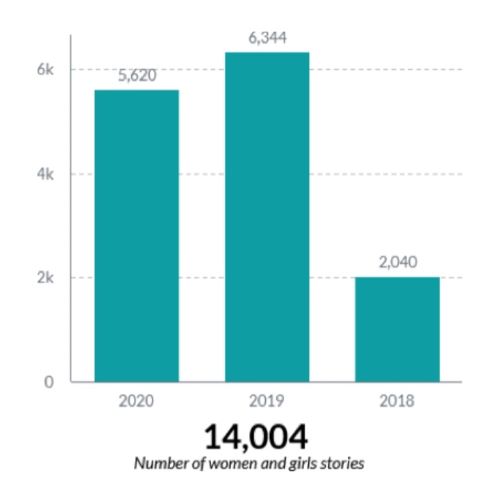
Image Source: WSCIJ media report
According to the report, the media increasingly reported issues of access and abuse against women in 2018 and 2019, however, this dropped in 2020. Of the years analyzed, 2018 had 2,040 stories, 2019 had the highest figure with 6,344 stories focused on women and girls issues, with the figure dropping to 5,620 stories in 2020.
Drawing data from 14,004 stories across 16 media platforms on issues affecting women and girls in Nigeria between the year 2018 and 2020, 0.81% of the stories were on forced child marriage; widowhood had 4.27%; human trafficking, 3.95%; domestic violence, 7.42%; female genital mutilation, 0.88%; rape, 29.97%; and other forms of abuse of women and girls accounted for 52.69%.
WSCIJ went further by selecting 91 of the SBGV cases, to “follow up on how far the affected persons ‘traveled’ on their journey to justice”. Of this number, 54 were rape cases. Seventy-five (82.4%) were perpetrated by men; nine (9.9%), by women; two (2.2%) by a combination of men and women, while the gender of the perpetrator was not specified for five (5.5%).
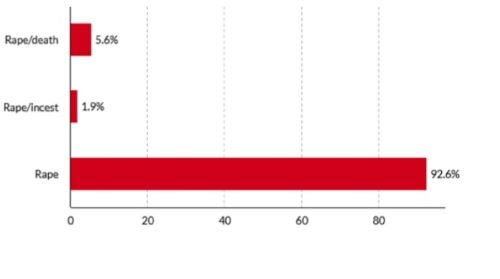
Image Source: WSCIJ media report
The report also went further to show that women of all ages are endangered by SGBV with adolescents (12-19) being the highest among the survivors and victims, accounting for 34.1%. Although the reported cases spanned 28 states of the six geopolitical zones including the Federal Capital Territory (FCT), Lagos was revealed to have the highest number of reported cases from the sample.
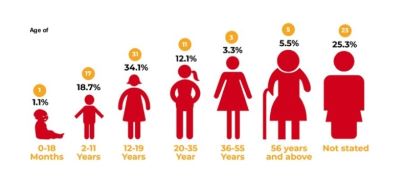
Image Source: WSCIJ media report
86 out of the 91 cases on abuse were reported to the police; one, to National Agency for the Prohibition of Trafficking in Persons (NAPTIP); one, to the National Drug Law Enforcement Agency (NDLEA); two were not reported to any law enforcement agencies, while media reports were silent on one of the cases, therefore it could not be ascertained if it was reported to the law enforcement agency.
On justice, the court verdict is not known for 13 (23%) of the SGBV cases that made it to the court. For the remaining 43 (77%), 27 (48.2% )of the perpetrators were remanded in custody; 9 (16.1%), were imprisoned; 2 (3.6%) were acquitted; and one, was sentenced to death by hanging. Additionally, two (3.6%) of the SGBV cases were settled out of court; one (1.8%) was not fully determined and marriage was dissolved in one (1.8%) of the cases.
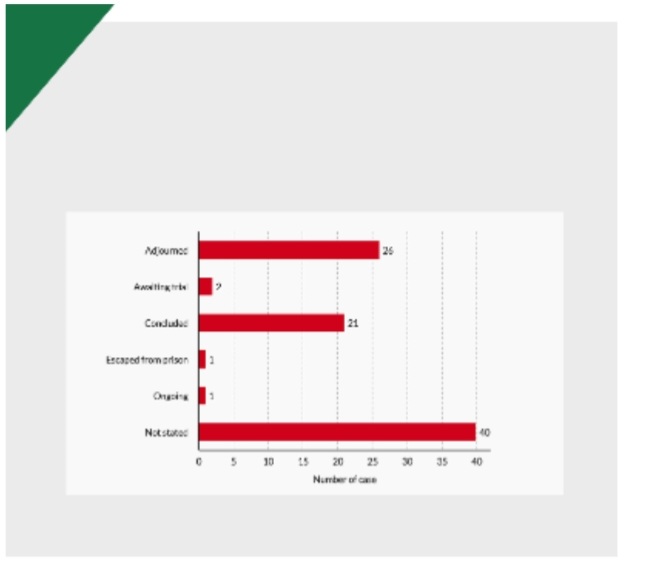
Finally, the WSCIJ report determined the justice status of the 91 cases regardless of whether they got to a court or not. Of the cases, 21 (23.1%) have been concluded, 26 (28.6%) adjourned; two (2.2%), awaiting trial; one (1.1%), escaped from prison; and one (1.1%), ongoing. For 40 (44.0%) of the cases, their status could not be tracked.
Why is there a Delay in Justice?
According to the report, lack of transparency on the part of the police, deficient data archives of security agencies, gaps in media reports, outdated or missing court data systems, corruption of court and prison staff, language barrier and distrust among others are some of the reasons why the Justice status of many cases have not been determined.
Lawyers React, Proffer Solutions
Omotosho Gbemisola, a Nigerian lawyer who spoke to this reporter about SGBV and the way forward for justice to prevail stated that one of the reasons why GBV continues to remain prevalent in our society and many do not get justice is because victims often refuse to speak up when it is necessary to. She explained that many cases go unreported and laws against the act are not properly put in place or acted upon.
“Some victims of GBV don’t take necessary steps against such actions because of their belief about the society they live in and as such, they could not access justice. They are often afraid to speak up or even consult a lawyer or reach out to NGO for assistance.”
“ Laws on SGBV, have not been properly put in place too in some states. Or in the alternative, there is no enforceability of the law with respect to SGBV.”
She advised that to decrease the rate of SGBV and aid victims’ access to justice easily, the law be put in place and acted upon in accordance with the law without favouritism.
Another lawyer, Olawoyin Mustapha also reemphasized that many cases of sexual violence go unreported, therefore obstructing justice.
“I’m afraid there’s little that can be done to bring true justice if the case is not reported or charged to court. There is also a need for the system to be upgraded and people enlightened. One way to address this is through a wide public sensitization/enlightenment, and all sensitization should include primary and secondary school students.”

























